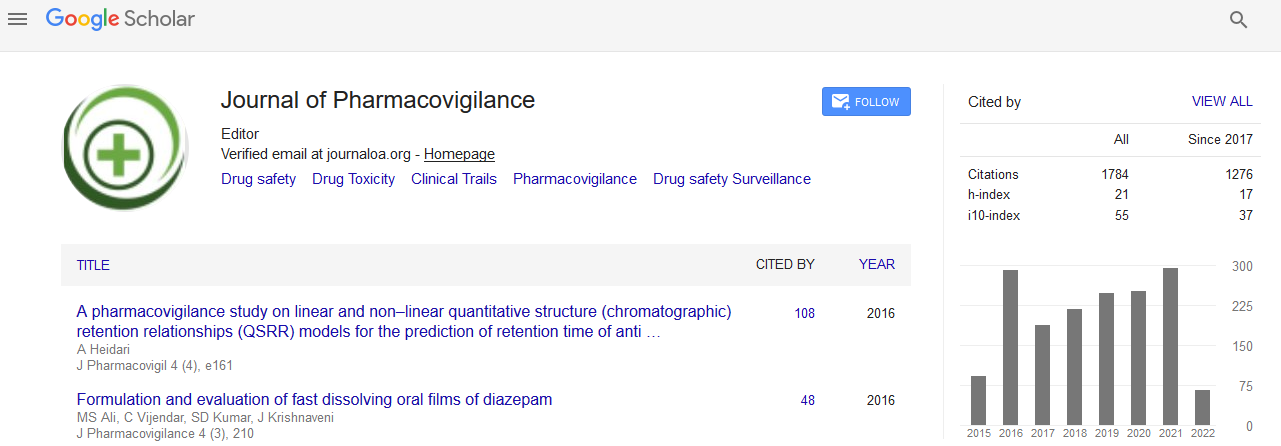Indexed In
- Open J Gate
- JournalTOCs
- The Global Impact Factor (GIF)
- RefSeek
- Hamdard University
- EBSCO A-Z
- OCLC- WorldCat
- Publons
- Euro Pub
- Google Scholar
Useful Links
Share This Page
Journal Flyer

Open Access Journals
- Agri and Aquaculture
- Biochemistry
- Bioinformatics & Systems Biology
- Business & Management
- Chemistry
- Clinical Sciences
- Engineering
- Food & Nutrition
- General Science
- Genetics & Molecular Biology
- Immunology & Microbiology
- Medical Sciences
- Neuroscience & Psychology
- Nursing & Health Care
- Pharmaceutical Sciences
Abstract
The Use of Angiotensin Converting Enzyme Inhibitors during the First Trimester of Pregnancy
Lyn Colvin, Barry NJ Walters, Andrew W Gill, Linda Slack-Smith, Fiona J Stanley, Lolkje TW De Jong-Van De Berg and Carol Bower
Background: The direct effects of angiotensin converting enzyme inhibitor (ACEI) medications on the fetus are difficult to determine since these medicines are usually administered to women presenting with high-risk pregnancies. The aim of this study was to provide an overview of the dispensing patterns, demographic characteristics and pregnancy outcomes of women dispensed an ACEI during pregnancy. Methods: Exposed pregnancies were all births in Western Australia, 2002-2005 where the mother was dispensed an ACEI under the Australian Pharmaceutical Benefits Scheme, compared with all other births during the same period. Result: From 2002 to 2005, there were 96,698 births in Western Australia. At least one form of ACEI was dispensed to 95 pregnant women (0.1%) and a further 677 pregnant women (0.7%) were dispensed an antihypertensive medication that was not an ACEI. Women dispensed an ACEI in the first trimester were more likely to be obese (aOR 33.4; 95% CI: 19.5-57.2), to have gestational diabetes (aOR 2.6; 1.3-5.4), to have a preterm delivery (aOR 2.8; 1.4-5.6), and to have smoked during their pregnancy (aOR 1.9; 1.2-3.0). The children of women dispensed an ACEI were more likely to have a major birth defect (aOR 2.6; 1.3-5.2). The risk of a major uro-genital birth defect (aOR 4.8; 2.0-11.7) was increased. Conclusion: Although ACEIs are contraindicated, pregnant women continue to be dispensed these medications. This study provides a profile of these women and their pregnancy outcomes. A clear change in the pattern of dispensing ACEIs later in pregnancy was apparent for these women. A greater number of women were dispensed ACEIs during trimester 1, followed by a marked reduction in dispenses in trimester 2 and trimester 3. Although the number of children affected is small, our data suggests that an increased risk of uro-genital defects may arise with maternal ACEI use in the first trimester.


